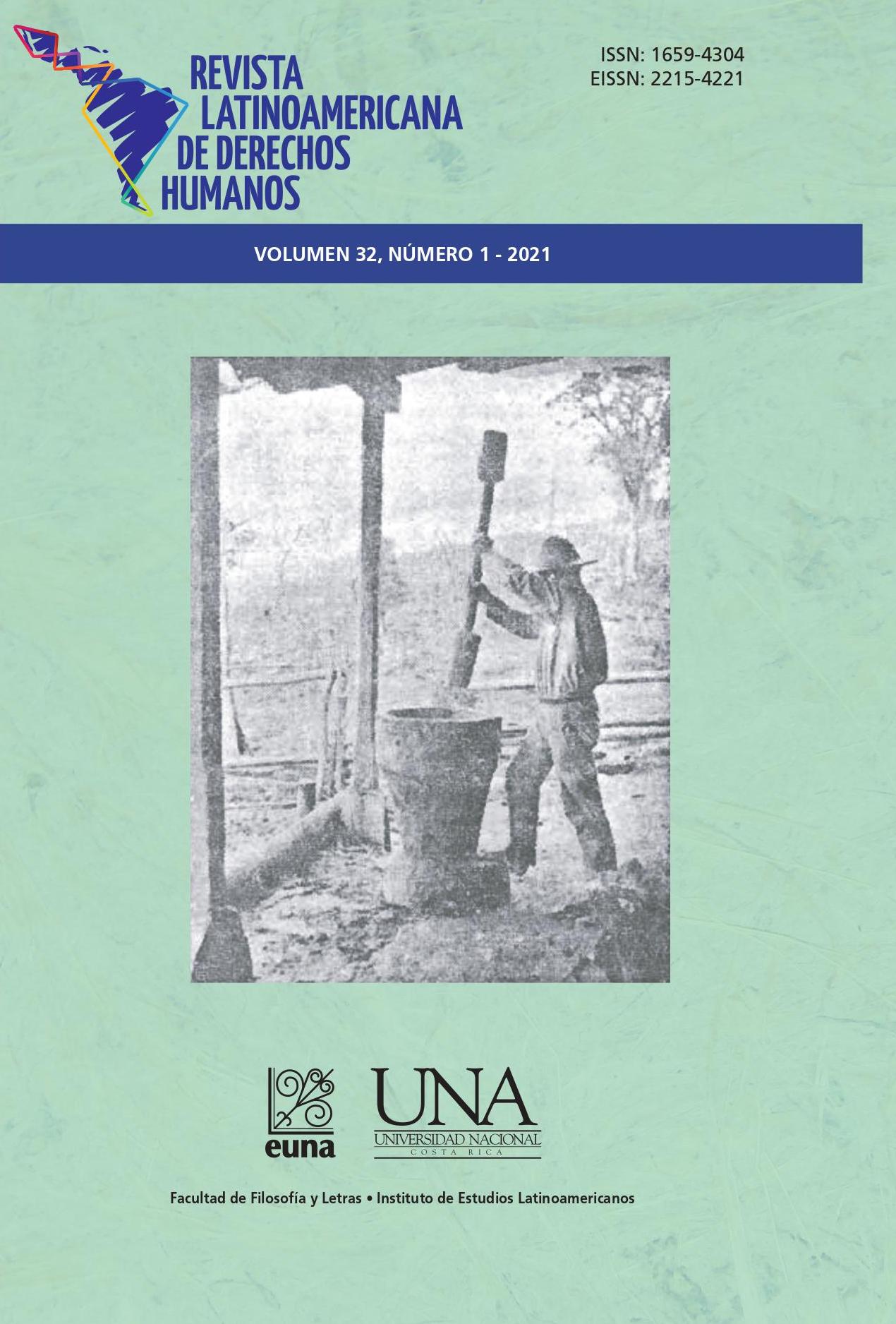The first outbreak: origin of humanism
DOI:
https://doi.org/10.15359/rldh.32-1.5Keywords:
Humanism, Classical Greece, Protagoras, SophistsAbstract
In the 5th century BC arose in Athens and then spread to almost all of ancient Greece, an ethical-philosophical movement with a strong orientation to political philosophy, which is known as sophism and/or sophistry. The two most prominent figures of sophism would be, Protagoras in the intellectual field, and Pericles in the political field. But a large group of other philosophers would make sophism the greatest pre-Socratic intellectual revolution in classical Greece. These progressive philosophers would push for representative democracy, to levels that would later not be known in the ancient world. And this would lead to social reforms typical of a welfare State, as consigned in the Constitution that Protagoras drafted for the new colony of Thurios. But the most important aspect is that sophism laid the foundations for the very audacious idea in those times, that the human being (in the form of the common citizen) is the only protagonist in choosing and forging his individual and collective destiny, even though destiny may not be achieved fully and in the desired manner. This radical turn, placing the human being at the very center of his own destiny, and outside the ominous forces of divine and supernatural order, is what in the European Renaissance, centuries later, would be called humanism. The main corollary derived from this premise is that the human being is, par excellence, the forger of his own liberation through his reason and will. That is to say: the fundamental protagonist of his self-emancipation.
References
Baraona, Miguel. (2013). Para un humanismo del siglo XXI: desafíos y propuestas. Revista de Nuevo Humanismo, 1(1). https://doi.org/10.15359/rnh.1-1.2
Baraona, Miguel y Jaime Mora. (2017). Hacia una epistemología del Nuevo Humanismo. EUNED: San José-Costa Rica.
Barbieri, Javier. (2011). Physis frente a nomos. Díkaion. Doi: https://doi.org/10.5294/dika.2011.20.1.3
Blunden, Andy. (1956). Karl Marx’s “Confession”. Review of Social History, 10(2), 60-67.
Cappeletti, Angel J. (1982). El agnosticismo de Protágoras. Revista de Filosofía Diánoia, 28(28). https://doi.org/10.22201/iifs.18704913e.1982.28.823
Colaiaco, James. (2013). Socrates Against Athens: Philosophy on Trial. Routledge N. Y. https://doi.org/10.4324/9780203707456
Dalby, Andrew. (2008). La reinvención de Homero. Gredos: Madrid.
Fernández, Clara. (2017). La crítica al cientificismo de Miguel de Unamuno. Universidad Pontificia Icai-Icade: Madrid.
Filóstrato. (1998). Vidas de los sofistas. Editorial Gredos: Madrid.
Fowler, Jeaneane. (2005). An Introduction to the Philosophy and Religion Of Taoism: Pathways to Immortality. Sussex Academic Press: Brighton.
Gabba, Emilio. (1988). La società ateniense nel ‘Vecchio Oligarca’. Athenaeum, 66: 5-10.
Garlan, Yvon. (1989). Les esclaves en Grece ancienne. La Decouverte: Paris.
Gil, Luis. (1989). La ideología de la democracia ateniense. CFC: Estudios griegos e indoeuropeos, 23: 39-50.
Gil, Luis. (2005). Las primeras justificaciones griegas de la democracia. CFC (G): Estudios griegos e indoeuropeos, 15: 95-105.
Gutiérrez, Javier. (1999). La agonía del cientificismo. EUNSA-Astrolabio: Madrid.
Hignett, Charles. (1962). A History of the Athenian Constitution. Oxford University Press: UK.
Jaeger, Werner. (2001) Paideia: los ideales de la cultura griega. Nobleza y areté. Fondo de Cultura Económica: México.
Laercio, Diógenes. (c. s. III d. C.). Los siete sabios de Grecia. Filósofos presocráticos. Escuela Jónica. Biblioteca Clásica: Madrid.
Llanos, Alfredo. (1953). Los presocráticos y sus fragmentos. Desde los milesios hasta los sofistas del siglo V. Juárez Editor: Argentina.
López, Ricardo. (2018). Presentación de los sofistas. Los primeros maestros del pensamiento. Universidad de Chile: Chile. doi: http://decsa.med.uchile.cl/wp-content/uploads/Sofistas.pdf
Martí, María. (2012). Wilhelm von Humboldt y la creación del sistema universitario moderno. Verbum: Madrid.
Mossé, Claude. (1991). La femme dans la Grèce Antique. Complexe: Paris.
Onfray, Michel. (2007). Las sabidurías de la antigüedad. Anagrama: Barcelona.
Platón. (2007). Obras completas. Refutaciones sofísticas. Gredos: Barcelona.
Pomeroy, Sarah. (1990). Diosas, rameras, esposas y esclavas en la antigüedad clásica. Barcelona: Akal.
Pomeroy, Sarah B. (1999). Families in Classical and Hellenistic Greece: Representations and Realities. Oxford University Press: Oxford.
Ramírez, Gerardo. (2000). La retórica de Antifonte. FCE: México.
Romilly, Jacqueline de. (1997). Los grandes sofistas en la Atenas de Pericles. Seix Barral: España.
Sealey, Raphael. (1994). The Justice of the Greeks. University of Michigan Press: Ann Arbor. https://doi.org/10.3998/mpub.13998
Solana, José. (2013). Los sofistas. Testimonios y fragmentos. Alianza: Madrid.
Tucídides. (439 a.C.-429 a. C.). (1990-1992). Historia de la guerra del Peloponeso. Editorial Gredos: Madrid.
Unamuno, Miguel. (1970). Del sentimiento trágico de la vida y el hombre de carne y hueso. Editorial Akal: Madrid.
Vidal-Naquet, Pierre. (1995). Esclavage et gynécocratie dans la tradition, le mythe et l’utopie. Le chasseur noir. La Découverte: Paris.
Vidal-Naquet, Pierre. (2005). “Les femmes, les esclaves, les artisans”. Le chasseur noir. La Découverte: Paris.
Downloads
Published
How to Cite
Issue
Section
License
El material que se publica en esta Revista está bajo una licencia “Creative Commons” 3.0 Costa Rica (CC, Reconocimiento-NoComercial-SinObraDerivada 3.0 Costa Rica (CC BY-NC-ND 3.0 CR) . Esto significa que el material publicado en la revista se puede compartir (copiar y distribuir) en cualquier medio o formato considerando que se debe reconocer de forma adecuada la autoría del material y la fuente, no puede utilizarse con fines comerciales y no se aceptan las obras derivadas (remezclar, transformar o crear a partir del material).








